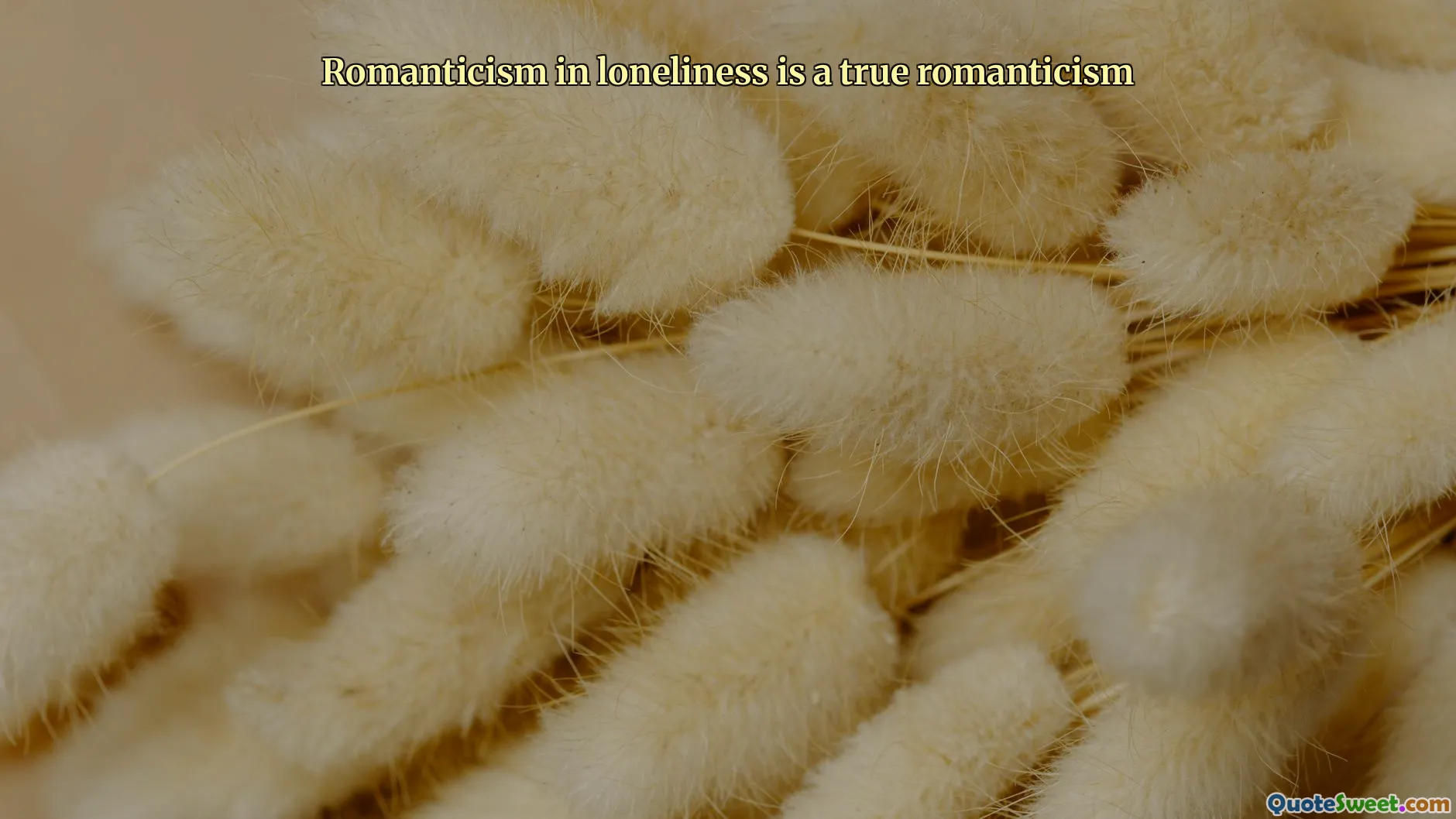
Romanticism in loneliness is a true romanticism
This quote explores the profound relationship between solitude and romantic ideals. Loneliness, often perceived negatively in modern contexts, is here elevated as a genuine expression of romanticism. It suggests that true romanticism is not merely about grand gestures or idealized love stories, but also about the deep personal experiences one has in solitude. Isolation provides space for introspection, self-discovery, and a heightened appreciation of beauty, emotion, and existential contemplation. Many romantic thinkers and poets—like Shelley, Byron, and Keats—embraced loneliness as a means to connect with their inner selves and the universe at large. In solitude, an individual can reflect on their desires, fears, and aspirations away from societal pressures, achieving a kind of authentic emotional landscape. This form of romanticism encourages embracing the solitude as an integral part of the human condition, valuing the honest, intimate moments we have with ourselves. It underscores that solitude is not inherently lonely but can be a fertile ground for inspiration, creativity, and genuine self-awareness. In a broader sense, the quote invites us to reconsider social loneliness versus chosen solitude and to appreciate how the latter can foster a deeper, more profound form of romanticism rooted in authentic experience rather than superficial appearances. Ultimately, it highlights that the truest form of romanticism may be found in the quiet, contemplative spaces within ourselves, where genuine emotion and beauty are discovered without distraction or pretense.











